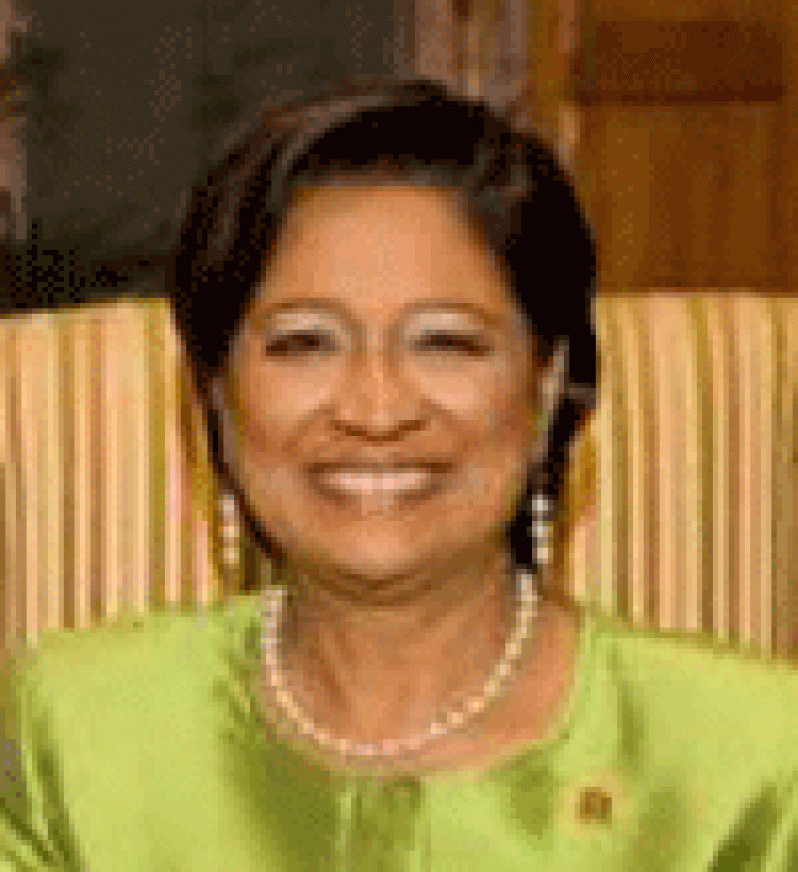IF all goes well, according to planned work programmes for two ministerial council meetings this week in Port-of-Spain, the people of the Caribbean Community should have a reasonable idea of what to expect among top priority issues for action when the region’s Heads of Government gather in Trinidad and Tobago for their 34th regular summit this coming July.
 Yesterday, the Community’s Foreign Ministers started their two-day meeting under the Council of Foreign and Community Relations (COFCOR) at the Trinidad Hilton. And by the time they conclude business today, those involved in representation on the Caricom Council of Ministers—the second highest organ of the Community—should be very much in readiness to pursue with a day-long session tomorrow.
Yesterday, the Community’s Foreign Ministers started their two-day meeting under the Council of Foreign and Community Relations (COFCOR) at the Trinidad Hilton. And by the time they conclude business today, those involved in representation on the Caricom Council of Ministers—the second highest organ of the Community—should be very much in readiness to pursue with a day-long session tomorrow.
Trinidad and Tobago will be very much in the news, regionally and beyond, over coming weeks on matters involving CARICOM’s trade and economic development, as well as diplomatic relations, while continuing with arrangements to host the 34th annual summit from July 4-6.
In this year of the 40th anniversary of the regional economic integration movement, which had its baptism at Chaguaramas, CARICOM would be expected to further strengthen relations with the wider Community of Latin American and Caribbean States (CELAC).
At a meeting in Havana, Cuba last month the group affirmed its willingness to “serve legitimate collective interests of member countries with consensus and unity”.
However, while CARICOM seeks to play, in the longer term, a meaningful role within the 33-member CELAC — inaugurated in Venezuela in December 2011 under the now late President Hugo Chavez — it is faced with the more immediate challenge to help determine the operational modalities of the proposed ‘PetroCaribe economic zone’ agreement on which was determined at the recent May 4-5 ‘PetroCaribe Summit’ in Caracas.
For CARICOM beneficiary countries of PetroCaribe, the assurance reaffirmed by the new Venezuela Government of President Nicolas Maduro, to continue offering the favourable payment terms for the oil being provided by Venezuela, would undoubtedly contribute in strengthening relations a lso among members of the wider CELAC group of nations.
lso among members of the wider CELAC group of nations.
T&T CONCERNS
At the same time, CARICOM governments would be expected to pay more attention to concerns expressed by Trinidad and Tobago that it may be compelled by changing economic fortunes to reduce its contributions to the CARICOM Petroleum Fund, established in 2004 and for which the country has already deposited some US$125 million to aid partner states.
In the mix between the now proposed PetroCaribe economic zone and the continued operations of T&T’s Petroleum Fund, there is also the issue of related political/diplomatic issues involving relations between “big brother” in the north (USA) and the post-Chavez government in Caracas.
In this context, CARICOM cannot be unmindful that while it seeks to sustain, as a matter of principle of friendship and political sovereignty, good relations with the government in Caracas, the Washington administration of President Barack Obama continues to withhold its “recognition” of President Maduro who won a slim victory at controversial presidential poll last month.
Now the Prime Minister of Trinidad and Tobago, Kamla Persad-Bissessar, is to host a meeting of CARICOM Heads of Government within the next two weeks for a working session with US Vice-President Joseph Biden, who has included this country (T&T) as an extension of planned visits to Brazil and Colombia.
Trinidad and Tobago is generally recognised as the sole energy-based economy of CARICOM, one with much financial clout in boosting its trade and economic relations, as well as functional cooperation among Community partner states.
| In this year of the 40th anniversary of the regional economic integration movement, which had its baptism at Chaguaramas, CARICOM would be expected to further strengthen relations with the wider Community of Latin American and Caribbean States (CELAC). |
VP BIDEN VISIT
Its own significant economic and political relations with the USA—irrespective of the administration in Washington – may help to explain the rationale for being the choice among CARICOM state for the coming visit by Vice-President Biden to meet with Prime Minister Persad-Bissessar and her Community colleagues.
At the time of writing there was no word from any other Head of Government, or the Community Secretariat on the coming Biden visit.
We must await with interest to learn what the CARICOM Foreign Ministers have to say to the people of the Caribbean on decisions made at their two-day meeting, ahead of that of the Council of Ministers session which will address a range of wider issues pertaining to overcoming the persistent sloth in implementation of decisions unanimously adopted to make a reality of the Community Single Market and Economy (CSME).
They can hardly be unaware of the urgency for CARICOM to inspire a renewal of confidence among citizens of the Community in what’s being said and done in their name.
They should know that in this period of economic depression, widening social problems, aggravated by alarming levels of criminality across the region, and the spreading disenchantment with CARICOM by citizens, it simply cannot be a ‘business-as-usual’ approach for the region’s economic integration movement in its 40th year of existence.


.jpg)











